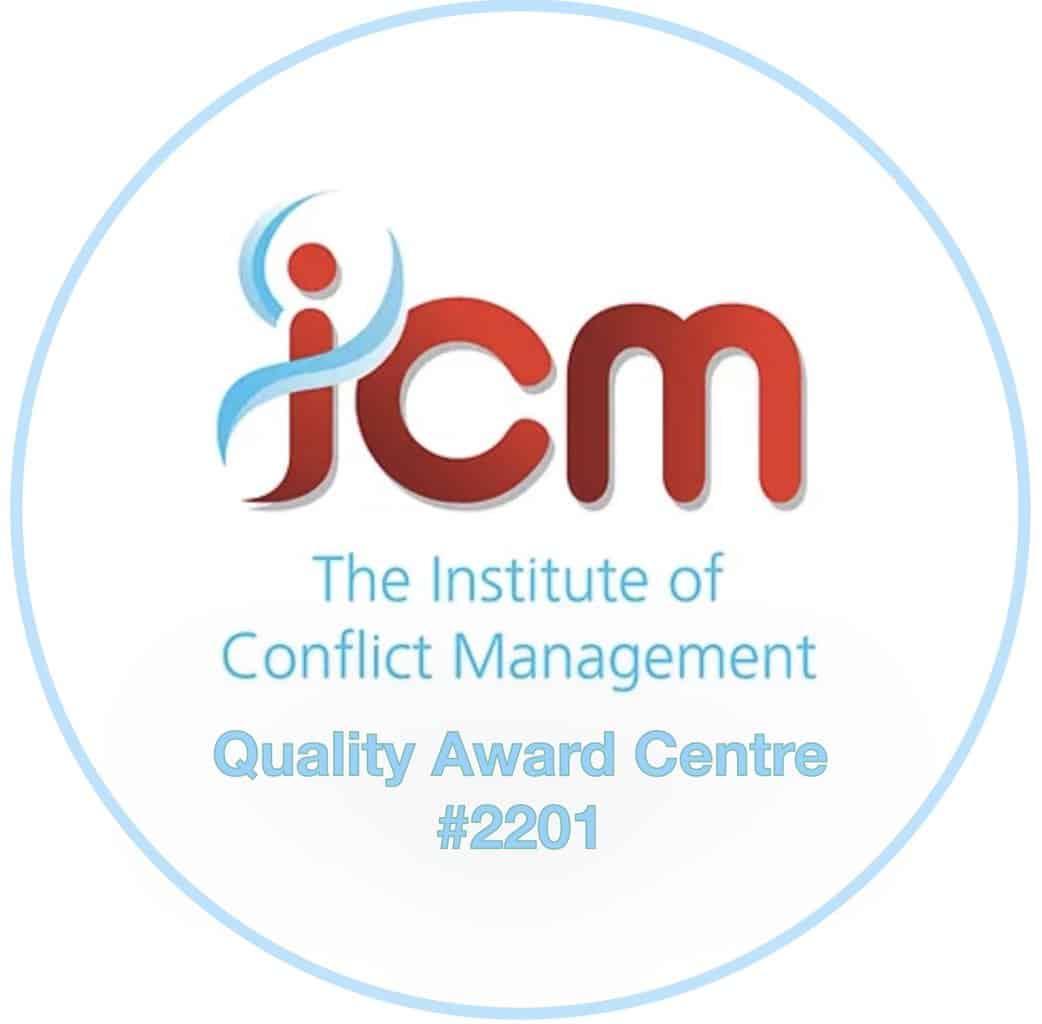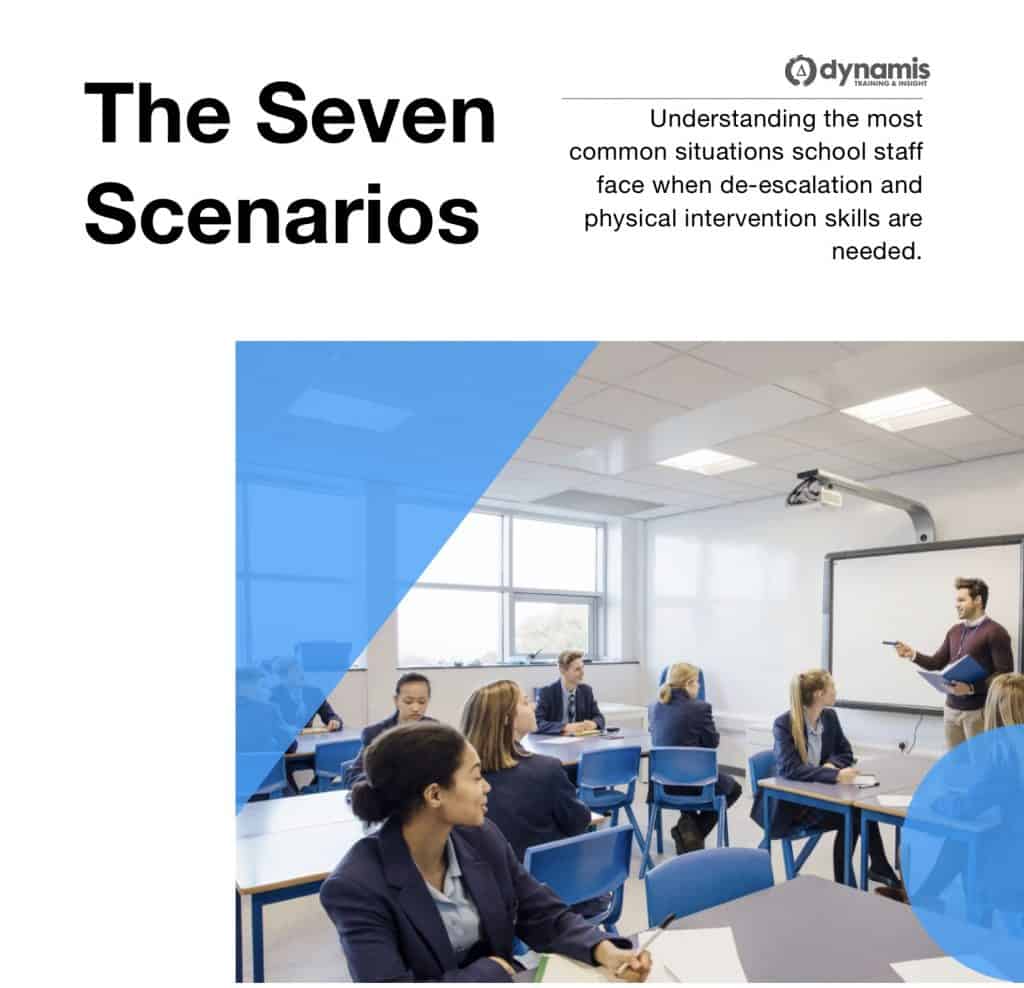What are Trauma-Informed Schools? Trauma-informed schools are educational institutions that recognize the impact of trauma on students and take steps to address
Behaviour and Personal Safety Training
Understanding Physical Intervention in Secondary Schools
A highly popular training course to create safer schools, staff and young people.
Positive Handling for Secondary Schools and Colleges is necessary to make sure that any physical intervention in an encounters lawful, safe and appropriate to the circumstances.
Our training covers a variety of the most common scenarios which staff in school face when they must deal with behaviour or risk, and gives straight answers to frequently asked questions.
Should I ever attempt to restrain a young person by myself?
What is good practice if I see two young people fighting?
Should I remove a young person who is refusing to engage in my learning activity?
What can we do about young people who 'lose it' suddenly in a classroom?

Behaviourally, we know that adolescents in a secondary environment:
– experience social status (the hierarchy, the pecking order) as a major driver for their behaviour
– are hugely influenced by group dynamics, are sensitive to in-group and out-group interactions
– when in conflict are influenced powerfully by the audience who is watching the incident
– if given an opportunity to withdraw and disengage from conflict, will take that option rather than ‘melt down’ in front of their peers.
The forseeable results of a poorly managed physical intervention at Secondary Schools and Colleges could be:
– a child with a life-changing injury
– a staff member with a life-changing injury
– career-ending legal proceedings against the staff member
– career-limiting prosecution of management decisions
– balance duty of care for your staff's own safety and for the children and their colleagues.
– keep everyone safe, verbally if they can and physically only if they must
– make split-second decisions about Necessity and Proportionality
– employ techniques which have been medically audited for use with children and young people
– avoid the use of dangerous and prohibited methods of restraint
– follow the Department of Education guidance on Use of Force (11 pages of succinct content)
– manage their concern of post-incident allegations so that they respond appropriately
– write a legally robust incident report after the encounter
It can be hard for staff to deploy appropriate de-escalation strategies where abuse directed towards them become very personal, or potentially damaging to their career, or over time wear away at the teacher’s professional presence (again with the issues of the audience, peer-oversight and the horizontal conflict that is often present in pressurised workplaces).
This is where giving time to staff to practice their responses to such behaviour, while overlaying some insight into conflict triggers for adolescents and young people, can be hugely valuable in giving management at a school the confidence that staff (both teaching and non-teaching) have the tools to deal with behaviour confidently and effectively.
On our courses we discuss the need for a ‘Showtime’ mindset to prepare for these critical moments, when the professionalism of the staff performance must shine through as they employ Redirections to deal with problem behaviour without escalating into direct conflict.
In our experience in helping many colleges and second-level institutions, it is pretty rare for secondary-level pupils to physically assault a member of staff.
Far more likely in this context is the problem of student-student violence, where a member of staff becomes aware of a physical encounter between two (or more!) students and realises, in a critical moment, that they may have to do something about the situation presented to them.
In situations like this, your staff really need to be standing on firm ground with respect to their Duty of Care:
- whose safety is a priority?
- how to we prioritise action?
- must I physically intervene to show professionalism?
- could I stand back and still be upholding my duty of care?
These questions are absolutely critical to the safe resolution of ‘students fighting’ and taking time on a training day to investigate the issues and answer your team’s questions is really beneficial.
Managing the audience becomes a critical skill in these situations at Secondary Schools and Colleges and is a terrifically difficult cognitive and psychomotor skill! Being at the centre of a large group of very aroused teenagers, who are upset about their friends winning or losing a physical fight, shouting and swearing and wanting to get involved…it takes some pre-planned and practiced responses from staff and the only way to develop those skills is by carrying out the appropriate ‘fire drills’ with your team to see how things roll!
An issue in our secondary environments is the growing threat of young people using edged weapons and knives to settle disagreements they have, or to climb a social hierarchy in a ‘status seeking’ display.
From stories dating all the way back to the murder of London head teacher Philip Lawrence, the the more recent stories about supply teacher Victor Uzomah who was stabbed in Bradford and of course the murder of Ann Maguire in Leeds, we know that some school-age young people both carry knives to school and will potentially use them.
Coupled with this is the growing problem of gang affiliation and the status of knife-crime and knife-assault in the community. The fear of many head-teachers and Senior Leadership Teams is that community ‘beefs’ can spill onto school or college corridors. Incidents in the community on monday night can precipitate non-student intrusions on to school grounds, bringing violence and chaos to the safe learning environment we are trying to create.
Feedback from Learners About Our Training
Thousands of learners with Dynamis Since 2006
Course Met or Exceeded Expectations
Trainer Was Very Good or Excellent
Training was Relevant and Appropriate
Join hundreds of Happy school clients
What our customers are saying:
really impressed with the style and techniques...
“Course was tailored to our school needs really well, Gerard had done his homework on our school and I was really impressed with the style and techniques that were shown. Good pace and Gerard is very good at keeping to task.”
HEAD OF YEAR // The Centre School
HI! I'M GERARD O'DEA
Director Of Training At Dynamis
Hi and thanks for visiting our website today.
In over 15 years of working with frontline staff who face difficult, distressed and dangerous behaviour, i have seen time and again how prepared staff can perform well and respond to challenging circumstances.
From teachers to nurses, teaching and care assistants to security officers in our hospitals and social workers in the community, if you deal with people every day, managing conflict becomes a necessity.
I became involved in this work because i saw the power of training and preparation in helping people to stay safe at work and to be more successful in working with their colleagues to create better outcomes.
I and my team of professional trainers now teach in over 200 training engagements every year around the uk and internationally for a wide variety of public-facing organizations just like yours.
We have sought out the best conflict management training content and the best learning methods in the world and bring them together for you and your team.

How is Dynamis Positive Handling training different?
"Keeping Everyone Safe - Verbally wherever possible and Physically only when necessary"
Uniquely flexible to your needs
With no less than 5 different formats for each course we deliver, we work hard to fit into your schedule, your budget and your work - your partner in behaviour management and positive handling.
dedicated to authentic learning
Through our collaboration with Loughborough University faculty, we design and deliver training which has the highest degree of transfer to your working environment.
trauma-informed and responsive
Through our partnership with NAOTP we are committed to being trauma-aware as a team and our problem-solving approach recognises 'all behaviour has meaning'.
Scenario-Driven
Your staff need skills and knowledge which will help you with YOUR specific children and behaviours, so our approach is focused on solving YOUR positive handling issues. See SCENA for more information.
Popular and Proven Positive Handling for Secondary Schools and Colleges
Our Positive Handling training reduces injury risk, improves inspection compliance and safeguards staff, children and your school’s reputation.
We are an Institute of Conflict Management (ICM) Quality Award Centre (#2201) for the delivery of conflict and interventions training.
We achieve this using a robust Positive Handling decision-making framework based on all the relevant legislation and National Guidance for Positive Handling, coupled with a modern, pragmatic approach to the holding and containment of children whose behaviour might harm themselves or others.
We deliver a relevant Positive Handling for Secondary Schools and Colleges training course for your team at your school or service, on dates of your convenience.
Choose from a standard one-day course on an INSET day or a blended/twilight short course which leverages our online training system. We also offer training for Special Schools or those who look after children with SEND by blending communication and de-escalation tactics with the appropriate last-resort physical alternatives.
We also have courses which support your staff:
The two key elements of Positive Handling for Secondary Schools and Colleges
POSITIVE HANDLING
KNOWLEDGE and THEORY elements.
Your staff are guided through 12 key decision-making factors which are fundamental to good practice in the area of Positive Handling. This Online Learning component may be particularly helpful for schools who have unnecessarily booked Whole-School training in the past.
… WITH A SCENARIO-LED TRAINING EXPERIENCE…
Our trainer will then lead your staff through the verbal models for conflict communications and the physical Positive Handling tactics they may need at the higher levels of risk in practical sessions where repetition and embedding the skills is our aim.
LEARNING OUTCOMES FOR POSITIVE HANDLING TRAINING:
YOUR STAFF WILL EXPLORE AND DEVELOP AN UNDERSTANDING OF:








World-class client feedback
Our client and learner satisfaction surveys have consistently been extrmely positive, even as we have grown to be an ever-more popular provider of Positive Handling and De-Escalation training. Watch the video to learn about our most recent results!
Our Partners and Accreditation

MEMBER OF THE INSTITUTE OF
CONFLICT MANAGEMENT
Dynamis is a Quality Award Centre with the ICM, a recognised accrediting body in the U.K. for workplace training in the prevention and management of workplace violence.

EUROPEAN PARTNER FOR
VISTELAR
Dynamis is the premier European Partner for Vistelar, a global consulting organisation covering training across the entire spectrum of human conflict.
REGIONAL REPRESENTATIVE FOR 9 ATTITUDES BEHAVIOURAL TACTICS
Dynamis represents the 9 Attitudes system, a fully behavioural approach to self-protection and physical control which is based on the observable realities of physical confrontation.
read our blog
Positive Classroom Management Techniques Listen here: http://www.bbc.co.uk/programmes/b06ry369 From the BBC: “Studies have shown that the most important thing in a child’s education
A system which has helped reduce restraints from 76 in a 12 month period to just 7, increased attendance to 86.5% in a










